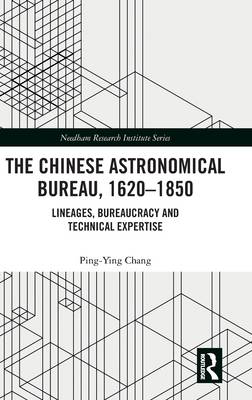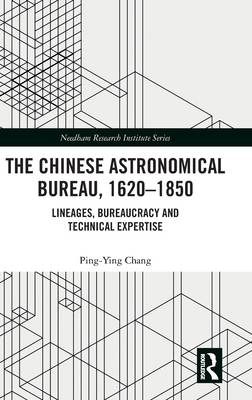
- Afhalen na 1 uur in een winkel met voorraad
- In januari gratis thuislevering in België
- Ruim aanbod met 7 miljoen producten
- Afhalen na 1 uur in een winkel met voorraad
- In januari gratis thuislevering in België
- Ruim aanbod met 7 miljoen producten
The Chinese Astronomical Bureau, 1620-1850
Lineages, Bureaucracy and Technical Expertise
Ping-Ying ChangOmschrijving
This book offers a new insight into one of the most interesting and long-lived institutions known to historians of science, the Chinese imperial Astronomical Bureau, which for two millennia observed, recorded, interpreted and predicted the movements of the celestial bodies.
Utilising archival material, such as the résumés written for imperial audiences and personnel administration records, the book traces the rise and fall of more than thirty hereditary families serving at the Astronomical Bureau from the late Ming period to the end of the Qing dynasty. The book also presents an in-depth view into the organisation and function of the Bureau and succinctly charts the impacts of historical developments during the Ming and Qing periods, including the Regency of Prince Dorgon, the influence of the Jesuits, the relationship between the Kangxi and Yongzheng emperors and the He family and the failure of the bureau to predict correctly the solar eclipse of 1730.
Presenting a social history of the Qing Astronomical Bureau from the perspective of hereditary astronomer families, this book will be of interest to scholars and students of Chinese Imperial history, the history of science and Asian history.
Specificaties
Betrokkenen
- Auteur(s):
- Uitgeverij:
Inhoud
- Aantal bladzijden:
- 230
- Taal:
- Engels
- Reeks:
Eigenschappen
- Productcode (EAN):
- 9780367439675
- Verschijningsdatum:
- 7/10/2022
- Uitvoering:
- Hardcover
- Formaat:
- Genaaid
- Afmetingen:
- 156 mm x 234 mm
- Gewicht:
- 521 g

Alleen bij Standaard Boekhandel
Beoordelingen
We publiceren alleen reviews die voldoen aan de voorwaarden voor reviews. Bekijk onze voorwaarden voor reviews.









